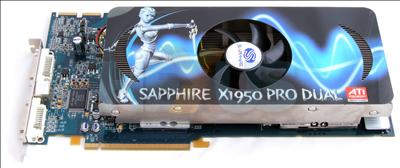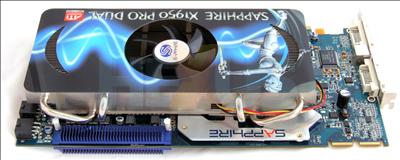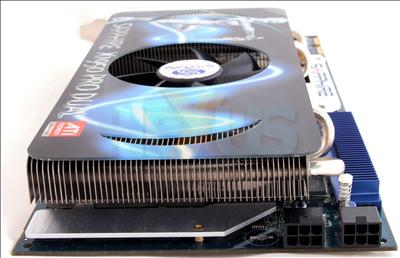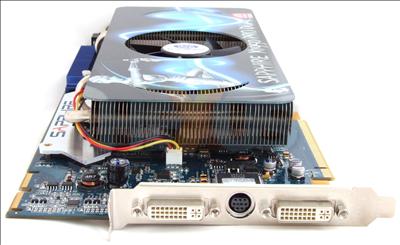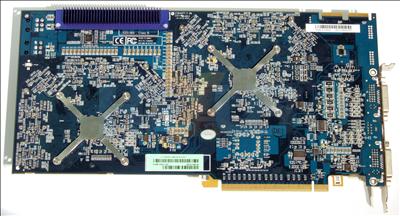Appearance and thoughts II
Angled shots show that cooling two RV570 GPUs requires a quad-heatpipe-based heatsink that's also double-height in stature. The memory chips are concurrently cooled, as well, and the 70mm fan is thermostatically controlled.
The heatsink's fan was reasonably quiet in 2D but quite noisy when the GPUs were stressed with 3D load. However, an intrinsic problem of this kind of heatsink design lies with the removed air, still pretty warm, recirculating in your chassis. An ATI Radeon X1950 XTX-like heatsink, where the transferred heat is channelled and exhausted directly out of the chassis, would have been better, especially with two GPUs running.
The card's extra-long dimensions, single-slot backplate, and lack of front-mounted support combine to put a considerable amount of stress on the PCIe slot.
Sapphire adds a passive heatsink on the VRM components, which get pretty toasty under load, and, as expected, a couple of PEG connectors to provide the necessary juice for this all-in-one CrossFire card.
As per regular Radeon X1950 Pro specification, both DVI ports support dual-link signalling and HDCP compliance, albeit single-link. Sapphire's also added the venerable Rage Theater VIVO ASIC for basic video-in capability.
Full-production models will feature further backplate with provision for a further two dual-link DVI ports - so a set from each card - allowing you to hook-up 4 displays. As such, the retail model will feature a couple of board-mounted headers that provide the necessary output support.
Notice the CrossFire connectors in the above picture? These allow you to attach a second Sapphire X1950 Pro Dual and run Quad CrossFire. However, at the time of writing, drivers exploiting this feature weren't available.






